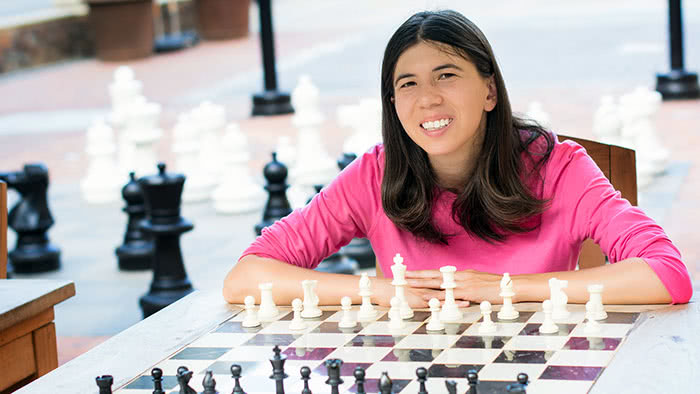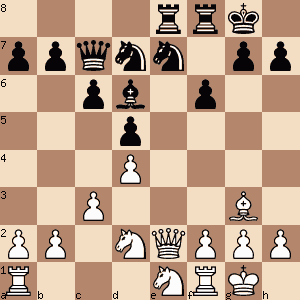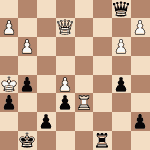Chess players make excuses for losing games and rating points. We lose chess games because we have not had dinner or because we have had dinner. We complain about the ratings formula. Likewise, we may make excuses for our extra pounds.
In Chess Ideas for Losing Weight, I wrote that I would try to lose my “Quarantine 15” and report back by the end of January. My excuse for being two weeks late, and writing in mid-February? I wanted to lose more weight before I wrote this follow-up article.
In my first weight-loss article, my daily goals were drinking 64 fluid ounces of water and tracking my calories, with calories expended greater than the calories consumed. I did pretty well on drinking water. I tracked calories every day too, but often recorded more calories in than calories out. I only lost five pounds between November 20, 2020 (the date of my first weight-loss article) and mid-February 2021. However, I have excuses.
Dinnertime Excuses
Chess historian Edward Winter quotes page 191 of Chess Life-Pictures by G.A. MacDonnell (London, 1883):
The excuses made by chessplayers for making bad moves and losing games are of wonderful diversity. Sometimes they are ingenious and even rise to the height of considerable imaginative power.
First let me notice the pre-prandial and post-prandial excuses. At one time it is, “I cannot play because I have not had my dinner”; and at another time, “I cannot play because I have had my dinner.” I have never yet had the good or the ill fortune to engage one of these gentlemen at the particular time when his chess powers were in real working order; and as all time must either precede or follow dinner, I am at a loss to conceive when such a player can conduct his game in a manner satisfactory to himself.
In addition to chess-and-dinner excuses, I make excuses about weight loss and dinner. I eat few calories during the workday, busy with my job duties and a one-hour swim. By late afternoon, my dinner begins. My food consumption sometimes continues until bedtime. Eating keeps me awake to enjoy some relaxation, like watching a chess Twitch broadcast. My extended dinner feels indulgent.
Even when I eat a hearty breakfast and a lunch, I still want dinner. Skipping dinner makes me cranky and then I eat to squelch that cranky feeling. Both playing chess well and losing weight is hard, whether or not dinner is consumed.
Points and Pounds
In March of 2020, FIDE posted a ratings analysis article by Kaspars Migla. Migla wrote, “Generally speaking, the higher the rating, the lower the rate of its change.” The FIDE rating calculator gives details.
Not only is FIDE’s formula more challenging for established players than for beginners, improving later in one’s chess career is inherently harder. A couple ideas for progressing from a 600-rated beginner to a rating of 1000 are to stop hanging pieces and to learn basic checkmates. For example, don’t leave your knight where it can be taken for free and practice how to checkmate with a king and a rook against a lone king.
Improving from 2100 to 2500, a common rating for grandmasters, requires more effort. The description of Grandmaster Andrew Soltis’ What it Takes to Become a Grandmaster states:
What it Takes to Become a Grandmaster
Even an average chess player can find the same moves as a Grandmaster as much as 75 percent of the time. The difference is that only the Grandmaster can find the other 25 percent. This book identifies the kinds of moves and techniques that account for that 25 percent. Among the topics covered in the book are: Mysterious rook pawn moves, Tacking, Piece Nullification, “King Feeling,” and how to play for a win without risk.
Quarantine 15
Having progressed five pounds toward losing my “Quarantine 15,” it is now tougher to lose the rest of that weight. Five pounds ago, the Lose It! application set my daily calorie intake as higher than it is now. As I lose weight, I must eat less because a smaller body requires fewer calories. Some foods are no longer good choices because they are too high calorie.
Sometimes, I substitute low-calorie vegetables for higher-calorie grains and dairy. Where before I might have eaten a bowl of cereal with milk, now I might microwave frozen vegetables. However, I could not resist buying four boxes of my favorite cereal because it was on sale. Perhaps I will write one more weight loss article, if and when I lose the last 10 pounds of my “Quarantine 15.”
100% Lady Chess Moves
In my article for February 9, 2021, I reported on the Open section of the U.S. Amateur Team Championship—West (USATW). The under-1800 section of the USATW was won with 5 match points out of 6 rounds, on tiebreak, by “100% Lady Chess Moves.” That team of four women featured Lauren Goodkind as its first board.

Can you find what Goodkind, US Chess-rated 1856, played on move 14, as White, in the last round? Black was Vijay Surla (rated 1857) of the team “We ran out of tranquilizer pills – Where can we buy more?” Surla’s team name was a reference to The Queen’s Gambit and his team also scored 5 match points out of 6 rounds. Black has just played 13…Rae8.

Click/tap for solution
Goodkind played 14. Qe6+, which wins the bishop on d6.
